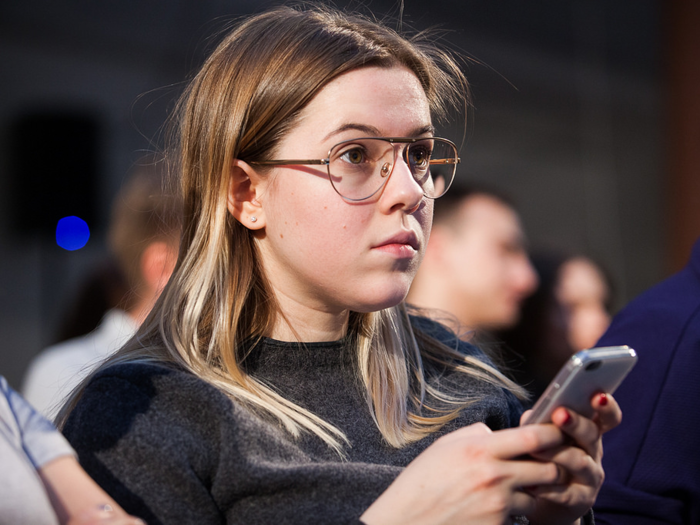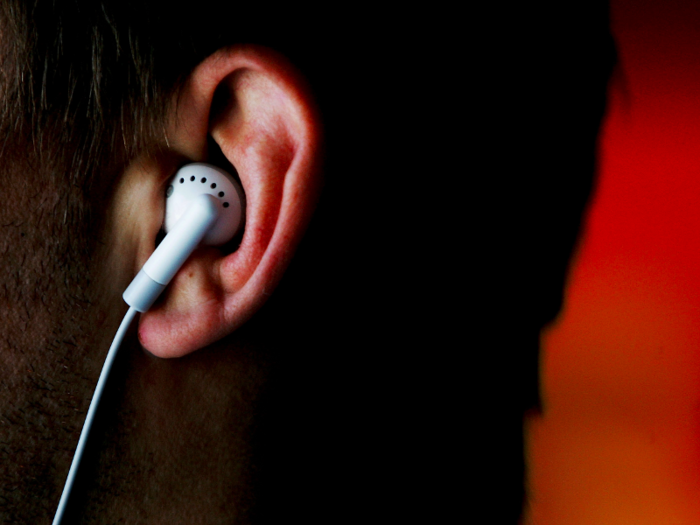- Home
- slideshows
- miscellaneous
- Startups are pioneering a dramatic shift in how we spot and treat depression - and you can try some of their new tools right now
Startups are pioneering a dramatic shift in how we spot and treat depression - and you can try some of their new tools right now
With backing from Olympic swimmer Michael Phelps, a company called Medibio is using sleep and heart rate data from your Fitbit or Apple Watch to spot a depressive episode.

Mindstrong Health's approach is to analyze how you type and scroll on your phone to detect mental illness.

Mindstrong Health, the Silicon Valley startup led by former National Institutes of Mental Health director Tom Insel, is working on pinpointing mental illness by collecting data on how you type, tap, and scroll on your smartphone.
Mindstrong's app, which hasn't yet been finalized, is designed to run in the background of your smartphone and pick up on how long you take to find something from a list like your contacts, which way you scroll, and how quickly you type.
The company calls this "digital phenotyping."
Mindstrong hasn't yet revealed how the ways you use your phone could indicate a particular condition, and the startup is still exploring the direction it might take its product. But Insel said they may first make the app available to an internal group of psychiatrists and social workers in the company who will work with several hundred patients to see how the platform works in real time.
"We have a passive, objective way of measuring how you're thinking that takes advantage of a technology that all of us are using all the time," Insel said.
Wall Street's favorite meditation app, Headspace, is working on a prescription-strength version of the app.

The $250 million mindfulness app company Headspace has plans to turn meditation into medicine.
A favorite self-improvement tool in Silicon Valley and on Wall Street, the app already has 30 million users. In June, by way of a new subsidiary called Headspace Health, the company announced that it will soon be rolling out a handful of prescription-grade meditation tools.
Headspace has not yet revealed which specific health condition the product is intended to treat, but Megan Jones Bell, the company's chief science officer, told Business Insider last month that it would "likely surprise a lot of people."
Headspace is starting clinical trials of the tool this summer. The company aims to get FDA approval for its first digital health product by 2020.
A Stanford researcher created a free therapy chatbot called Woebot to help anyone dealing with symptoms of depression and anxiety.

Woebot is an artificially intelligent chatbot designed to help with depression and anxiety.
Unlike traditional therapy, Woebot can be accessed anywhere, anytime — provided the user has a smartphone. And it's free.
Once you log in with your first name, you're set up. Woebot — a cute, animated robot — then asks you questions about yourself, such as how you're feeling or what your energy is like at that moment.
The artificial intelligence behind the app is programmed to provide scripted responses to users based on the principles of cognitive behavioral therapy, or CBT.
I recently tried the app out myself and found it to be surprisingly handy.
A small study published in April in the Journal of Medical Internet Research, Mental Health suggests that other people feel that way about it too.
Out of 70 college students who used Woebot, the majority said they saw a significant reduction in their depressive symptoms, unlike those in a control group who were instructed to use an e-book full of tutorials on depression. The participants who used Woebot reported chatting with it almost daily, even though they weren't required to spend any specific amount of time with it.
A mental health service called X2AI is boosting its reach using a bot called Tess.

Like Woebot, a platform called X2AI is powered by artificial intelligence and available around the clock.
But instead of providing scripted responses, X2AI's tool, named Tess, acts as a sort of liaison between therapists and patients.
"Normally, a therapist will see five patients per day and spend the rest of their time on administrative work," Michiel Rauws, the cofounder and CEO of X2AI, told Business Insider in January. "What we allow them to do is look after 50 patients per day, because while they're chatting with their patients, Tess is chatting with their other patients."
If a person tends to have panic attacks on Sunday nights, Tess might reach out proactively via text to see how they're doing, then report the outcome to the person's therapist, Rauws said.
That's somewhat similar to how Medibio envisions its app working — as a sort of tether that helps connect patients with their therapists outside of a traditional office setting.
Talkspace, an app that links you to a therapist by text, has plans to soon prescribe drugs.

Instead of texting with an AI-powered chatbot, you can also message a real human therapist. Talkspace, a text-message-based therapy platform designed to replace or supplement traditional therapy, has been leading this approach with an app that launched in 2015.
Talkspace works by linking you to a therapist who you can chat with over text and video. The service costs $49 per week.
The company recently unveiled plans for a major expansion that includes prescribing users medications for conditions like anxiety and depression.
Roni Frank, Talkspace's co-founder and head of clinical services, told Business Insider in April that the decision to expand into prescription drugs comes alongside the company's recent appointment of its first chief medical officer. Neil Leibowitz, Talkspace's pick for the role, was previously the senior medical director at UnitedHealth.
Popular Right Now
Popular Keywords
Advertisement